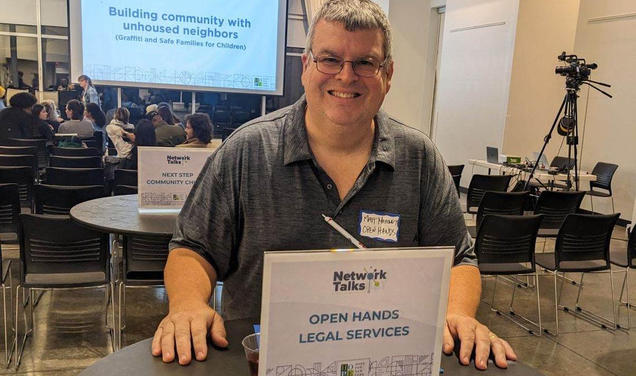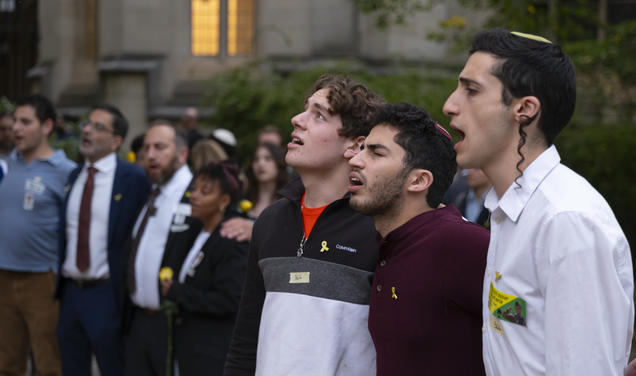
For five members of the men’s golf team, Princeton’s spring finals period began 2,500 miles away from campus. As those Tigers traveled to the NCAA Regional last week in Pullman, Wash., they studied on the plane; after the completion of Thursday’s first round, many of them sat down in their hotel’s conference room to take exams. “It’s been busy,” said Greg Jarmas ’14, who didn’t have to take any tests during the tournament — but finished three take-home exams the following day.
The quintet in Pullman certainly had better study breaks than the rest of their classmates, however, teeing it up on Washington State’s Palouse Ridge Golf Club for Princeton’s first postseason appearance since 2006. Playing in a field that included No. 1-ranked California and three other top-25 teams, Princeton finished 13th of 14 qualifiers, closing its most successful season in several years.
Only the top five teams advanced to the national championships, which will be held next week in Atlanta; it would have been a massive surprise if the Tigers had been among them, as no Ivy League school has reached the NCAA finals since 1984 and none of this year’s 30 qualifiers are from the Northeast. Any hopes Princeton had were dashed on Thursday, as the top contenders opened with a bang: USC’s Seth Smith set the course record with a 10-under-par 62, and two other teams set school records. More than half the field shot better than par, but Bernie D’Amato ’13 was the only Tiger in red numbers. After one round Princeton was 27 shots off of the lead.
The Tigers performed better in Friday’s windy conditions despite posting a slightly worse aggregate score, as the tournament average was three strokes per player worse than Thursday’s birdie-fest. One of the exceptions to that trend was Jarmas, who recovered from an opening-round 75 to shoot a four-under-par 68 on Friday; only two players scored better in round two. Jarmas, who said some of his drives approached 400 yards on the firm fairways when the wind was at his back, finished the three-day tournament at minus-1, tied for 30th overall.
Princeton saved its best for last, shooting a two-over-par 290 on Saturday, the eighth-best team score of the final round. After a season in which the Tigers placed in the top five six times and won two tournaments — including their 24th Ivy League title — they were glad to end on a positive note.
“I couldn’t really ask for anything more from these guys,” Jarmas said. “We accomplished our main goal of winning the Ivy championship. We didn’t get off to best start here Thursday, but the way we bounced back in the second and third rounds is emblematic of the character we had this season. It’s kind of sad to see it end, but it was a great season, start to finish.”
Quick takes
WOMEN’S OPEN CREW won its second Ivy title in three years, dominating the varsity eight race at Sunday’s Ivy League Sprints to win by nearly seven seconds. In doing so, the Tigers avenged two losses — one from earlier this season, when they were defeated by Harvard, and one from last year’s Ivy Sprints, when they were edged by Harvard and Cornell. Next up is the NCAA Championships May 30-June 1, where No. 5-ranked Princeton will be one of the top contenders, especially in the varsity eight.
MEN’S HEAVYWEIGHT CREW finished fourth at the Eastern Sprints in Massachusetts, while MEN’S LIGHTWEIGHT CREW took fifth; Harvard won both races to claim two Ivy League crowns. With the completion of Sunday’s rowing action, all 33 official Ivy League titles have been awarded. Princeton is in double digits for the 22nd time in school history (and at least the fifth straight year), and unlike last year’s tie with Harvard, the Tigers are alone on top (see chart at right).
Two Tigers will compete in NCAA championship tournaments this week, and both are among the nation’s top contenders. Kelly Shon ’14 of WOMEN’S GOLF, the first Tiger to reach the NCAA finals since 1997, begins play in Georgia on Tuesday morning; she got there by finishing second in one of three regional tournaments. MEN’S TENNIS star Matija Pecotic ’13, a three-time Ivy League Player of the Year, will play in the first round of the NCAA singles championship on Wednesday; he is currently ranked 15th nationally.













0 Responses